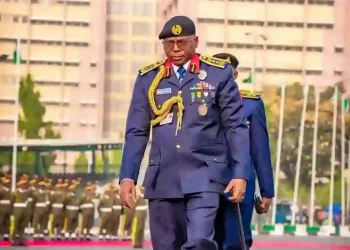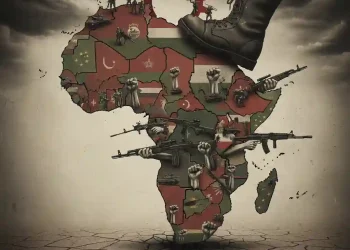Amnesty International Nigeria has demanded an urgent independent investigation into what it describes as a “reign of impunity” in the country’s Southeast region, where nearly 2,000 people have been killed in years of unchecked violence and government inaction.
The human rights organisation made the call on Tuesday in Enugu during the unveiling of its report titled “A Decade of Impunity: Attacks and Unlawful Killings in Southeast Nigeria.”
The report documents that at least 1,844 people were killed between January 2021 and June 2023 as security forces, armed groups, and vigilante units perpetrated violence that has left communities traumatised and living in fear. Amnesty warned that escalating human rights violations from both state and non-state actors are undermining the region’s peace, stability, and development.
“The failure of the government to address the security crisis in the Southeast has created a free-for-all reign of impunity. Many state and non-state actors have committed serious human rights violations, and victims continue to cry out for justice that never comes,” said Isa Sanusi, Director of Amnesty International Nigeria.
Sanusi traced the crisis to the Nigerian government’s heavy-handed response to pro-Biafra protests beginning in 2015, which he said plunged the region into an “endless cycle of bloodshed.”
“The brutal clampdown on pro-Biafra protests from August 2015 plunged the Southeast into a cycle of bloodshed that has created a climate of fear and left many communities vulnerable,” he stated. “Assassinations of prominent personalities and attacks on highways, security personnel, and facilities are chilling reminders of the region’s insecurity.”
Based on interviews with over 100 people—including survivors, victims’ families, civil society groups, and traditional and religious leaders—the report documents widespread killings, torture, enforced disappearances, and arbitrary arrests across the five Southeast states. Amnesty researchers conducted fieldwork in Owerri (Imo State), Asaba (Delta State), Obosi (Anambra State), and Enugu (Enugu State) between April and November 2023.
Imo State was among the hardest hit, recording over 400 deaths between January 2019 and December 2021, with gunmen launching unprovoked attacks on police stations, vigilante offices, and residential areas.
“Gunmen often emerge from their camps unmasked to attack residents, police stations, and vigilante offices. These raids have triggered reprisal attacks, resulting in deaths and injuries for thousands of residents,” Sanusi revealed.
Victims who testified to Amnesty International described harrowing experiences of extortion, arson, and targeted killings. According to the report, “Victims described how the gunmen appear, routinely demanding money from communities during burial ceremonies and weddings. Anyone who resists risks being attacked during the night, and their house is set on fire.”
Ebulie, a survivor from Ihiala in Anambra State, told Amnesty: “The ‘unknown gunmen’ are armed—some with guns, cutlasses, and matches. If they come for an attack, anyone who blocks their way will be killed. It has been a terrible situation, and people are scared.”
Amnesty International also criticised Southeast governors for their silence, saying their failure to respond to inquiries about the killings demonstrates a lack of political will to address the crisis.
“The silence of Southeast governors on the matter shows a disturbing lack of commitment to ending the carnage. Their inaction has left families devastated, lives lost, and the socioeconomic development of the region crippled,” Sanusi said.
The organisation called on federal and state authorities to conduct credible, transparent investigations into all reported unlawful killings and to hold perpetrators accountable, whether they are security personnel or members of armed groups.
“The people of the Southeast deserve peace, justice, and progress. Only through accountability can the cycle of impunity and violence be broken,” Sanusi emphasized.
In September, Amnesty had previously urged the Federal Government to end the recurring killings and restore law and order in the region. With hundreds continuing to die and many more displaced, the human rights organisation insists that justice and accountability must precede reconciliation.
“Every day the authorities delay action, more lives are lost. Ending impunity is the first step towards peace in the Southeast,” the report concluded.





















